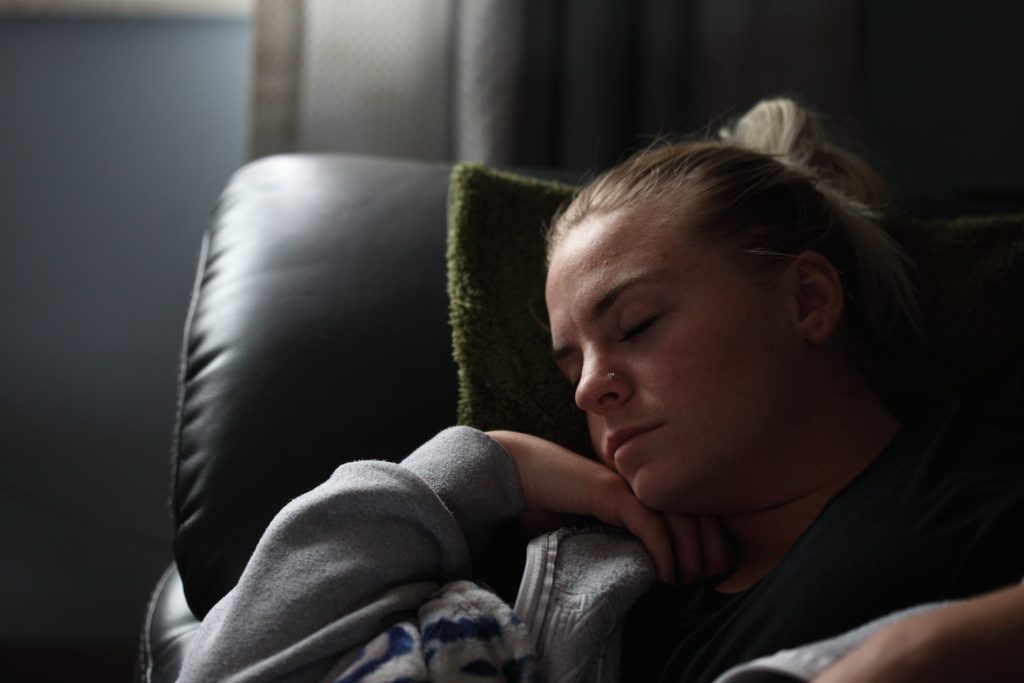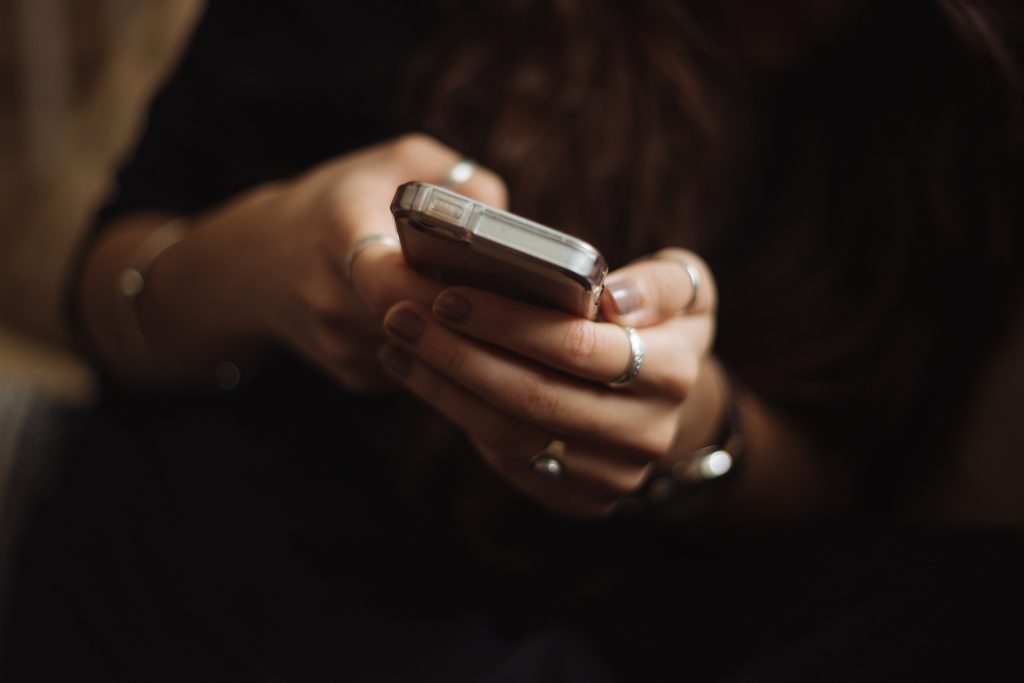Having difficulty sleeping and some bad sleeping habits? You may engage in one of these five common undesirable nighttime practices. With these suggestions, you can learn how to break the habit and go back to sleep.
Bingeing before Bed
No, we’re not talking about watching your favorite show nonstop (we’ll get to that in no. 5), we’re talking about dinner … and dessert … and nighttime snacks that create a bad sleeping habits. Your body needs time to digest all that food before sleeping, otherwise you’re likely to have indigestion and heartburn, which can interfere with sleep. Why? When your stomach is really full, acid can creep into your esophagus (hello, heartburn). Lying down compounds the problem since gravity isn’t there to aid in keeping the stomach acid in place.
Overdoing the Nightcaps
Sorry. It’s just untrue that drinking alcohol before bed promotes restful sleep. Although it may make you feel sleepy, alcohol interferes with your capacity to enter and stay in a deep sleep state, according to a number of studies.
Giving in to Your Inner Night Owl

Giving in to Your Inner Night Owl
It might be tempting to stay up later believing you’ll accomplish more. However, developing the practice of staying up later and later can be extremely harmful to your health. In addition to getting less sleep, night owls may also be more likely to have bad eating habits and ailments like type
Break the habit: Get into a sleep routine. This can be a hard one, especially for diehard night owls, but try to stick to the same bedtime and wake-up time every day (yes, weekends too). Your body will thank you. Ease into this routine by going to bed 15 minutes earlier for a week and rise 15 minutes earlier. Keep up this strategy until you’ve reached your desired bedtime.
Working up a Sweat before Bed

Working up a Sweat before Bed
Strenuous activity, such as going for a long run before bed, might make it challenging to fall asleep. Intense activity increases your body’s core temperature, releases endorphins, and may also increase your cortisol levels. No issue at any other time of the day. In actuality, those who exercise frequently claim to sleep better. However, for you to have a good night’s sleep, your core body temperature must decrease. Additionally, the endorphins that are racing around in your brain may keep you buzzing and prevent you from relaxing and going to sleep.
Sleeping with Your Screen

Sleeping with Your Screen
Your smartphone is part of your life. It’s your newscaster, travel planner, organizer, entertainer, alarm and more all rolled into one. Yet your brain is wired to react to what it sees on the screen. It acts as a stimulant, as opposed to helping lull you to sleep. That one last check of your email before bed? That sends your brain into problem-solving mode, not sleep mode. And the light from those screens can negatively impact your sleep too, again signaling to your brain it’s still time to be awake, as opposed to releasing sleep-inducing hormones.
Break the habit: Pay attention to your screen time before bed. Try to avoid checking your phone once you’re in bed. Instead, try reading a book (an actual book, not one on your phone) before bed. Still having trouble resisting the urge to check your phone? Consider keeping it in another room and using an old-fashioned clock as your alarm instead.
